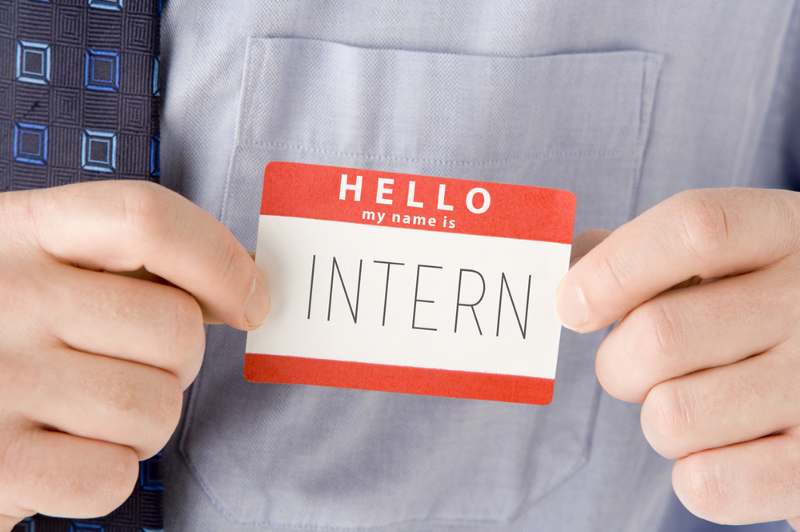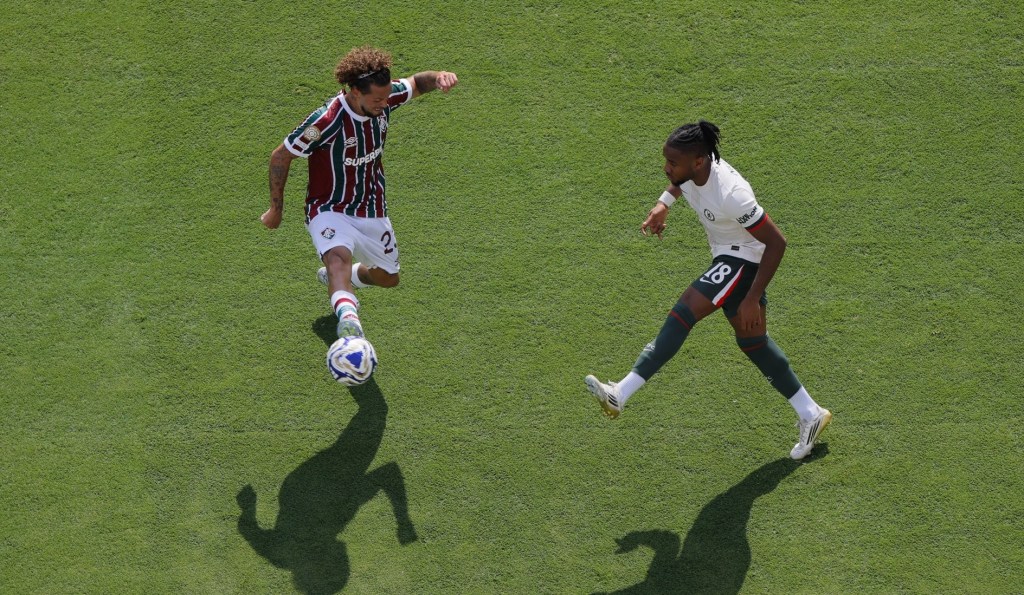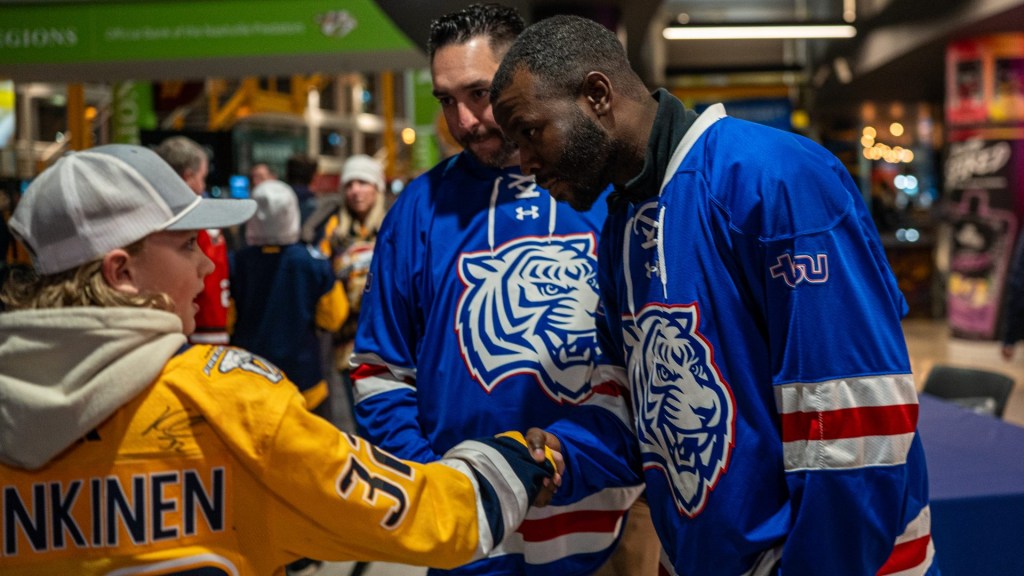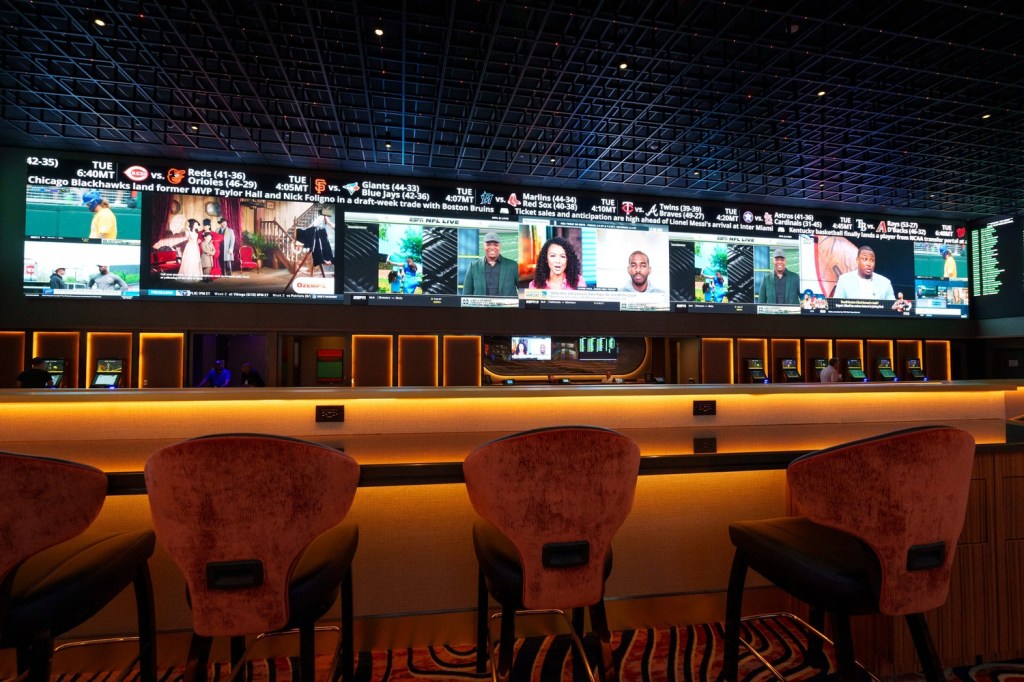
By: Luke Bolanos, @LukeBolanos
We all know it, or at least those of us within the sports business world do, just how important internships are when starting out in our professions. Sure, each one of us has our own unique story of how we started out but what was the purpose and value of those internships, the majority of which were unpaid, we committed ourselves too in the early going?
Like many others I’m sure, I began to question the countless hours I was putting into various internships throughout my two years of graduate school at Belmont University. Fresh out of college where I was a student-athlete, I had balanced being a student and an athlete but didn’t quite know what the real work world was and what profession I wanted to go into for my career. Deciding to go to graduate school, I chose a sport administration master’s program that focused on helping you get a job upon graduating through many internships. It had always been my dream to work in sports, although sometimes not focused, since I was young if I couldn’t become a professional athlete. However, I didn’t complete any sport internships or volunteer my time in athletics as an undergraduate. Therefore, I had to figure out what area of the sports world fitted best for me and my skill sets, or so I thought.
This is where internships helped me out the most, figuring out what exactly I wanted to do and which things I did and didn’t like within the sports world. In the Nashville area there are plenty of great opportunities for sports with four different NCAA Division I athletic programs within the metro area and two professional sports teams. Vanderbilt University was the closest to where I was at and where there seemed to be the most opportunities for volunteering my time, also very easy to get plugged in. I began helping out with marketing on football game days and really fell in love with the pageantry of Southeastern Conference football games, however, I did not fall in love with the very early mornings and plentiful physical labor.
My second semester of graduate school I began an official unpaid internship with the marketing department at Vanderbilt. Working basketball, lacrosse and baseball games, I found much of what I was doing unappealing as I never got to experience the contest at hand on game days. That summer I did another internship, this time with the Tennessee Titans ticket office before helping out with the Vanderbilt athletic communications staff that fall and winter.
My final semester of graduate school I did my last unpaid internship with the Ohio Valley Conference as an assistant to the communications staff. Through all these internships, all of which were unpaid except for one that was $100 a week but up to 35 hours worked, I learned I had an undying passion for collegiate athletics. Furthermore, I found I really enjoyed working the actual game/match itself and reporting on it by distributing information, which has led me to pursue a career in athletic communications and media relations.
Earlier I mentioned I thought I was going to figure out what area of the sports world best fitted me based on my skill sets and that proved not to be the case. I majored in business management with a sports track in undergrad so I believed marketing or business operations would be best suited for me, instead it turned out to be communications which I had no prior experience in. Much of what I do now as an assistant director of athletic media relations is writing game/match recaps and feature stories, working with graphic design platforms such as Adobe InDesign and Photoshop, keeping and filing statistics, and implementing social media, none of which I had any training in as a college student. All my internships in graduate school help me prepare for a career in the field I learned to love in one way or another. Take my first internship in athletics for example, while I was working with marketing I was observing and watching what the communications staff did on a day-to-day basis and on game days. With that knowledge I knew I wanted to help them out to get a real feel if it was something I wanted to go into, which it turned out to be.
I wouldn’t trade any of my internship opportunities I had for any other path to where I am today. Each one of those internships served their purpose and helped me in one way or another, no matter how worthless or frustrating some hours felt. Each skill I learned during these seasons of training can one day prove to be beneficial, anything from learning how to run a snow cone machine to learning the most popular ticketing software.
For me it was also about building character and continuing to develop my work ethic. Don’t get me wrong, as a student-athlete in college I learned about work ethic. All the late nights studying after six hours of physical fitness followed by a weekend mostly on the road.
However, there are always your grades you can look up or being named to the Dean’s List, a national ranking you receive, countless awards and recognition from your coach, teammates and school. As an intern you don’t have any of that except maybe a pat on the back, thank you note/e-mail and if you’re lucky a gift card. There are countless memories from my interning days, good, happy, funny and bad, but there are two in particular that stand out.
“When I was an unpaid intern from time to time I would ask myself, ‘Will I ever get paid for working in college athletics?’”
— Luke Bolanos
The first, standing in the outfield stands in the pouring rain at 39-degrees in a light jacket and khakis handing out promotional items and punching fan cards for a baseball game.
The second, updating non-biased conference social media accounts from press row as my favorite college basketball team lost in the championship game.
Both of these memories standout out because both situations were quite taxing mentally and emotionally but for some reason neither one made me question if I really wanted to work in sports and college athletics in particular. I think its experiences like those that really build your character and work ethic, you can’t find that doing many other things than unpaid internships.
Following my graduate school work and my many internships in the Nashville area, I knew I wasn’t quite ready for a full-time job within athletic communications so I began looking for a full-time year-long paid internship or assistantship. I was fortunate enough to land one at the Southland Conference in Frisco, Texas, that paid well enough to support myself for a year. Now there were plenty of memories I built during my year as a communications assistant at the Southland Conference and tons of things I learned through the opportunities I had, but it never quite felt the same as my previous internships because I was working full-time and getting paid for it. There are many great experiences, along with many difficult and bizarre things you do, working in college athletics but it’s different once you have a title and are being paid for what you’re doing. Something is to be said about putting in countless hours of hard work, learning in all you do and not getting paid for it.
When I was an unpaid intern from time to time I would ask myself, “Will I ever get paid for working in college athletics?”, but I knew it would one day pay off from all the knowledge and insight I was gaining about the industry. What I believe to be important is the willingness to serve others mentality you develop and have to have when you’re an intern. This translates directly to when you do have a full-time position and are in an administrative role. If you are always looking to help out others around you and are willing to serve in any way you can, you will be more successful at your job and be more noticed to your supervisors. You become more attractive, valuable and not as easily replaceable. The same way you wanted to get involved as an intern and help out with things you hadn’t tried before, you should continue to do as a full-time employee, even if it is helping out in a department not directly associated with yours.
I hope maybe this will provide some encouragement for many of the great interns we have out there today in the sports world and more specifically in college athletics, or for others as you look back and reflect on how you got started.
Internships help guide you down a specific career path and allow you to learn what profession is best for you. Internships build you, develop you and teach you, and those are the lessons and experiences you will take with you forever.

















